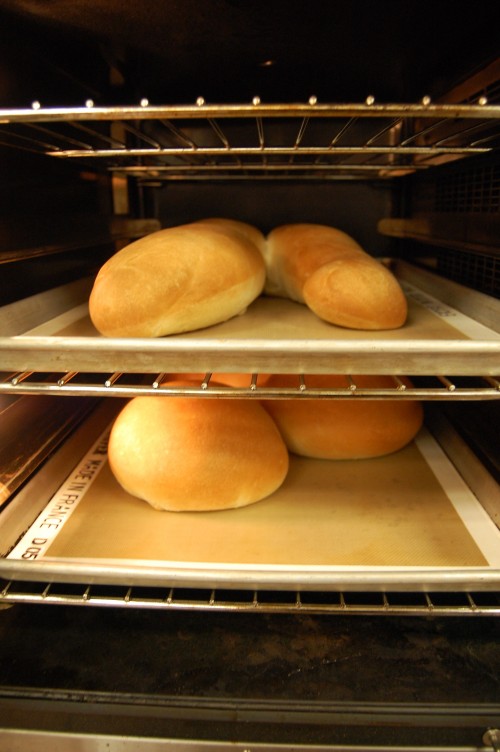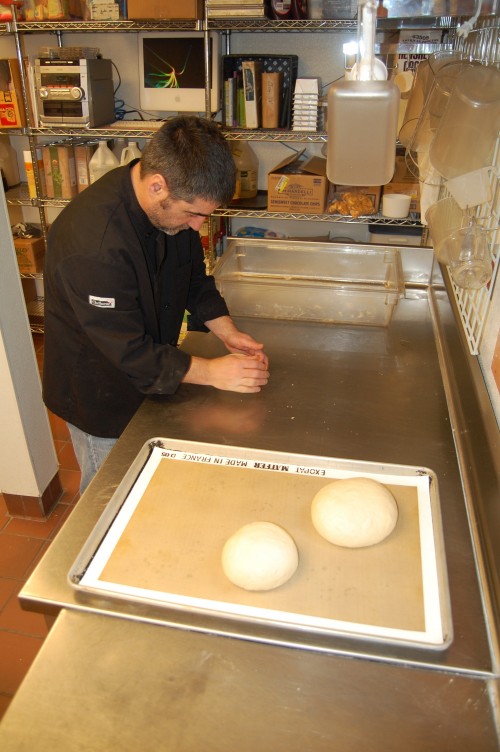A Habitat for Learning
 [We are excited to publish the third piece in our Foodshed Series, with monthly updates from the amazing chefs working so hard to provide program participants and staff at the Environmental Learning Center with sustainable, seasonal, and deliciously fresh food. In an age where the production and consumption of food are heavily disconnected, we work hard to preserve those ties by considering how food flows from the farms to our tables and all the processes in between. Purchasing from local farmers allows us to draw connections between their livelihoods and our own while at the same time contributing to our mission to conserve Northwest environments through education. It’s a renewing and rewarding partnership, and one we hope to keep sustaining and growing.]
[We are excited to publish the third piece in our Foodshed Series, with monthly updates from the amazing chefs working so hard to provide program participants and staff at the Environmental Learning Center with sustainable, seasonal, and deliciously fresh food. In an age where the production and consumption of food are heavily disconnected, we work hard to preserve those ties by considering how food flows from the farms to our tables and all the processes in between. Purchasing from local farmers allows us to draw connections between their livelihoods and our own while at the same time contributing to our mission to conserve Northwest environments through education. It’s a renewing and rewarding partnership, and one we hope to keep sustaining and growing.]
This time of year has us all thinking about comfort foods, and one of the primary comforts here at the Environmental Learning Center is bread. Every meal is a little better with some fresh bread and soft butter to accompany it. And speaking of company: The Latin roots of the word “companion” literally translate to “those with whom you share bread.” No other item lies closer to the intersection of food and culture. And here I want to briefly discuss how baking and sharing bread also connects us to our environment and to the role of education in that process.
As part of the ongoing Foodshed Project at the Environmental Learning Center, we have taken to baking as much of our own breads as possible. Using organic, locally-milled flours, we’ve managed to turn out baguettes, cottage loaves, rolls, and sandwich breads in ample numbers. Chef Shelby Slater has made this possible with a number of improvements to the kitchen, including a dedicated baking counter, two new steam-injected convection ovens, and a deep supply of high-quality, high-protein whole grain flour from Fairhaven Mills in Burlington. The results have been outstanding. The Mountain School students have loved the sandwich bread, the staff have certainly appreciated the bounty of loaves just out of the oven, and the kitchen staff have thoroughly enjoyed trying new techniques and creating beautiful products from scratch. It is a kind of empowering work that makes us proud of what we do and gives our days that extra something. It’s always gratifying to look over at the dough and see it developing into a ripe and fermented mixture ready for baking. And the feeling of pulling a dozen loaves of fresh bread from the oven is nothing short of victorious.
 The boss, Shelby Slater, shapes a few old-school cottage loaves.
The boss, Shelby Slater, shapes a few old-school cottage loaves.
The process of breadmaking places us in a deep tradition of turning grains into something much more than the sum of its ingredients. Not only does it save us money, it frees us from supply lines and products that often include much more than the bare necessities. This understanding, as well as a focus on techniques and basic ratios, has brought us to a more holistic and adaptable approach.
Making bread is a bit like raising animals. Granted, the comparison of ranching to baking is a bit of a stretch, but there are comparisons to be made. As a rancher or farmer, you work with living organisms, provide animals with a habitat in which they can flourish, and then harvest at the appropriate time. When mixing a dough, you are essentially turning the yeast “out to pasture” where it can feed on starches and sugar and produce the gases that create the unique texture of risen bread. And then you trust the yeast to do its thing.
And this is the final connection tying break making to our environment and education: Trust. Just like yeast, or chickens, or cattle, we are products of our environment, and our ability to flourish depends as much on our resources as our willpower. The way a baker provides yeast with a habitat and leaves the rest to the organism itself gives us insight into how we can understand the role of educators here at the Environmental Learning Center and beyond; not to shape the outcome, but to provide the environment in which learning can occur. Creating the conditions for success is an act of faith. So we, in the kitchen, like our companions in the field, proceed with the faith that our work will lead to something greater. The main difference, I suppose, is that educators are attempting to create something that lasts. We hope our good work in the kitchen is gone by the end of the lunch hour.
Leading photo of freshly baked bread coming right out of the oven at the Environmental Learning Center! All photos courtesy of Mike Cuseo.


Mike, your writing is beautiful (and so are your breads).
Mike, I can’t wait to come up and sample more of your delicious creations–you are an artist, and your writing is wonderful, too!
Everything is better with bread. Cheese. Oysters. Wine. And learning about nature and friends and life. And especially in the North Cascades. Thanks Mike and Shelby for bringing these delicious loaves to life at the Learning Center.
This is great. I especially love the ranching comparison… git along lil’ doughies.
I’m reading a book I enjoyed so much, I went on the web to read more about the author. Their bio stated they taught at the Institute which I had never heard of in all of my 60 years born and raised in Washington. As a foster parent of adjudicated high risk teenage boys for 10 years , then Early Childhood Educator for ten more and now a Nanny, I have always been interested in a wholistic approach to our health and well being especially children. My very first summer job was as a pearl diver (dishwasher) so I could attend a summer camp on Puget Sound all summer long. Now I am full circle thinking about what I want to do when I “retire” and that would be to be in a program working with children outdoors. I loved reading about your kitchen and it’s local, living, environment, not the sugar loaded #10 can of pork and beans, and processed packaged products like Wonder Bread that I remember 50 years ago at summer camp.
Beautiful Mike! But don’t think your impact ends when students leave the dining hall, your message and nutrition sticks with them for a lifetime.